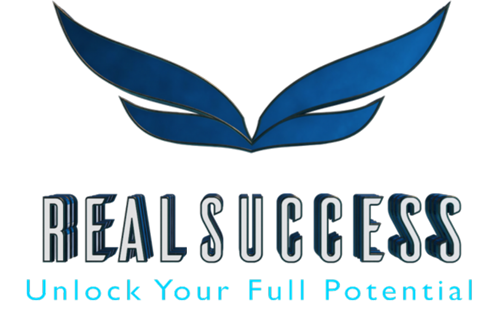Real Estate Wholesaling is a great business model. Wholesaling is quite a promising career for beginners who eagerly want to step inside the most successful industry in the US. It is a win-win market, as it requires no credit ratings, real estate licenses, hefty investments, or sunk cost factors. All you need is a seller that offers a low-cost off-market property, and an interested buyer willing to purchase it, leaving wholesale real estate agent with substantial profits.
Often the sagging real estate properties having investment potential are the ones that require rehab on the seller’s end. Hunting them down is rather tedious for beginners. Smart wholesaling agents keep an eye on the market caps and competition to make their way to the desired property.
There are plenty of marketing and lead hunting strategies needed to list down probable sellers and buyers and to make a deal that is beneficial for everyone.
How do Wholesalers make money on this? Simple, they mark up the Seller’s contracted price and pass that on to the buyer, taking the difference as their profit. The bigger the mark-up is, the more profit the Wholesaler makes. What’s key to maximize profit, is to find a Seller who will sell low and a Buyer who will buy high. Also critical, of course, is speed; if the Wholesaler takes too much time to find a buyer, they may be liable to pay from their own pocket, depending on how the contract is structured.
There is another type of real estate wholesaling that is worth talking about; Reverse Wholesaling. The mechanics of the deal are pretty much the same as with a regular real estate wholesale deal, apart from the order being in reverse. So, a Wholesaler will secure a Buyer first, then look for a Seller. With Reverse Wholesaling, the Wholesaler is at the advantage of knowing exactly what type of property to look for to meet the Buyer’s needs.
The great thing about both systems is that, if done right, there is no need to use your own money. You can also choose to use whichever strategy works for you, or a combination of both.
Here at Real Success, we offer a comprehensive and hands-on marketing experience to beginners in Real Estate Wholesaling. We lift our trainees up in the competition and help them grow by teaming them up with our hand-picked professionals. Our financial education and turf training program assisted in building innumerable careers in the real estate sector.
Advantages of Real Estate Wholesaling
The associated benefits are long-term and lucrative for a real estate wholesaler. Except for an upfront contract fee, there’s no solid investment needed when signing an agreement with a seller.
Except for a few states, a real estate license is not an obligation in the wholesale model. Still, wholesale agents need to verify with an attorney if any such law exists beforehand. For newcomers, wholesaling is foremost and rather a giant leap towards a promising career in real estate.
With the right tactics and plentiful theoretical expertise, wholesaling generates quick and easy money altogether. The prospects are rosy and rewarding as winning deals build a perpetual portfolio and add to the experience to sell more with less effort.
Things to Consider Before Hitting the Road
A soldier is deemed to perish if he brings a knife to a gunfight. Be prepared as chance favors the prepared mind. The real estate market is crowded with money and experience in abundance. To rip through the tough competition, polish your marketing and negotiation skills with confidence and competence.
Discovering and securing distressed properties is a bagatelle if the wholesaler is equipped with the right tools and prowess. Make your presence felt by joining local online communities to hear from potential buyers and sellers firsthand.
Make use of the internet, create a website, and generate leads through local online forums. Craigslist is another popular real estate community to buy and sell property online, do check that regularly to find investors. Keep a keen eye on local real estate competition, probable profit cap, and net worth of the house after rehab. A better estimation results in higher profits for the middleman.
After a deal is finally put into action, give them a follow-up call, or leave a text or email of gratitude and greetings to get into the buyer’s good books. A happy customer is more likely to do recurring business with a friendly agent.
Assigning and Double Closing Contracts
Those of us who have been involved in Real Estate Wholesaling for a while already know about the two ways to profit from a Wholesale contract. And, now you are about to find out too.
The two ways to close the deal are by selling the contract (also known as Contract Assignment, as I mentioned earlier), and what is known as Double Closing. The two may appear to have many similarities, but it is the small difference in them that is well worth noting.
This could be the difference between success and failure. So, if knowing this is something of interest to you; you may want to get your head around the differences between Contract Assignment and Double Closing.
What Is Real Estate Wholesale Contract Assignment?
Assigning a contract in Real estate Wholesale is started when the property owner agrees to sell that property to an Investor (the Wholesaler) and enters into a contract stating such. Once the contract is agreed, the Investor basically has the rights to BUY the property. The Investor can then sell on these rights to BUY to another Buyer. This point is key; the Investor is not selling the property, they are selling the rights to BUY property.
So, you as the Real Estate Wholesaler, are not selling the property; you are selling the contract, that you will have entered into with the property owner(s), on to another Buyer. This makes Contract Assignment, typically, a Wholesalers best option.
Equitable conversion is a doctrine pertaining to the law of real property. Under this doctrine, once a purchase agreement contract has been signed, the property becomes equitably owned by the Buyer. This allows the Wholesaler to have an equitable interest in the property in terms or purchasing it. It also allows the Wholesaler to sell on these rights to a third party Buyer.
Assigning a contract should never see the Wholesaler take title of the property and there will be no record of it in the property’s title deeds. Wholesalers will not even be responsible for funding the deal; this will be the responsibility of the party buying the contract from the Wholesaler.
The Buyer will pay the Wholesaler the profit (the difference in their price agreed with the Wholesaler compared to Wholesaler’s agreed price with the property owner). They will then pay the Owner the price originally agreed between the Owner and Wholesaler.
In essence, Contract Assignment allows investors to be the middleman between sellers with buyers.
Now, this is an important point. The terminology of the contract between the Wholesaler and the Owner is critical. Any property sale agreement can be sold on to a third party unless it expressly states otherwise in the contract. For this reason, it is imperative that you make sure that your contract states exactly what you need it to state so that you are able to wholesale the property. If in ANY doubt, consult with an attorney who specializes in real estate contracts and conveyance.
What is a Contract Assignment Fee?
This contract assignment fee is the Wholesaler’s profit on the real estate wholesale deal, for acting as the facilitating middleman. How this fee gets paid, is detailed in the Assignment of Real Estate Purchase and Sale Agreement. It can be settled in various ways, as negotiated by the Buyer and the Wholesaler. The same applies to the figure the fee amounts to.
Usually, the Wholesaler will be paid a deposit as soon as the Sales Agreement has been signed between them and the Buyer, with the remainder paid on closure of the deal. This is all negotiated beforehand.
Common Misconceptions About Wholesale Real Estate Assignment Contracts
OK, so there have been a few wild accusations and misconceptions about Real Estate Wholesaling recently; some going even as far as to claim it as illegal, or that the Wholesaler is just an unlicensed agent.
These have generally originated from a point of view that is ignorant of the law and unfamiliar with Wholesale Real Estate procedures. Firstly, selling a contract is perfectly legal. Secondly, all the Wholesaler is doing is selling a contract that they have entered into; there’s nothing to be ‘unlicensed’ about concerning that!
Let’s substitute the word Wholesaler for the word Investor; with plans to buy their investment and sell it at a higher price. Different terminology, same outcome. That’s just what you, as the Wholesaler will be doing; not listing the property for sale for a commission like a real estate agent would do. Of course, there is an element of transparency in this as the strategy needs to be divulged to both the Seller and the Buyer.
Real Estate Wholesaling can be tricky for some people to get their heads around; that is why it is always a good idea to work with an attorney that is well-versed in the process. This is particularly the case if you intend to operate independently. Those new to Wholesaling have a high risk of falling into some of the many legal pitfalls involved in the process; so, until you have a decent attorney, proceed with caution.
What Is Double Closing
Double-Closing, or Back-To-Back Closing is simply when a property is purchased and then sold again in a relatively short timescale. This could be a few hours, days or weeks; which in many ways makes them quite similar to a traditional real estate transaction, but just a lot faster.
There are two transactions that occur during a double-closing process; that between the Seller and the Wholesaler, and that between the Wholesaler and the Buyer. Each of these will have their own agreements for holding funds in escrow and settlement statements. The two transactions are totally independent of each other.
Settlement statements summarize all fees and charges incurred by both the Buyer and the Seller over the course of the wholesale transactions. Under the US Dept of Housing and Urban Development (HUD) jurisdiction, a settlement statement is also known as a HUD-1. Both settlement statements (between Seller/Wholesaler and Wholesaler/Buyer) are integral to each transaction.
The main difference between a Contract Assignment and a Double Closing, is that the latter will actually see the Wholesaler take ownership of the property. This means that the wholesaler will appear on the chain of title deeds. They will also be liable for the costs associated with purchasing real estate: escrow fees, closing costs, and so on.
It is your choice, the route that you take as a Real Estate Wholesaler.





0 Comments